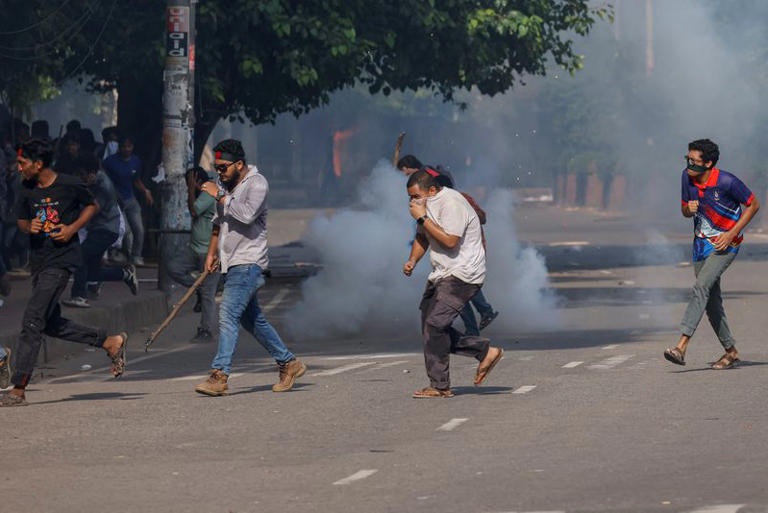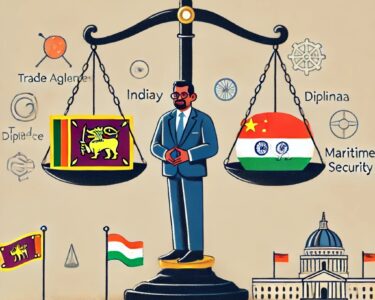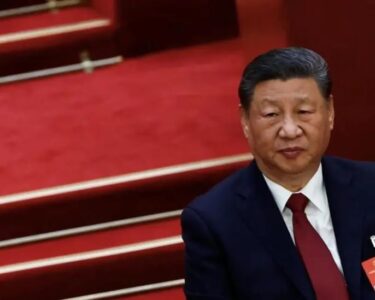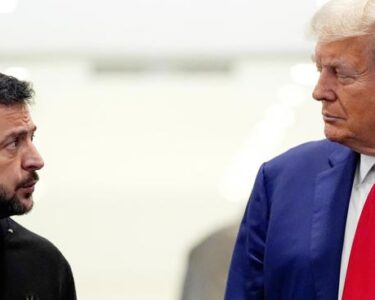Thousands of students armed with sticks and rocks clashed with police in Dhaka as Bangladeshi authorities cut mobile internet services to quell protests against civil service hiring quotas. Local media reported that at least 32 people died during protests across Bangladesh on Thursday, with mobile services blocked in most parts of the country.
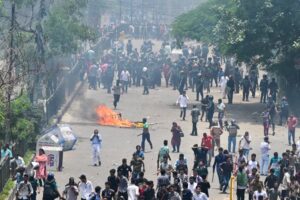
Eleven people, including a bus driver and a student, were killed in clashes with police in Dhaka. In Narayanganj, southeast of Dhaka, two people were killed, and two more deaths were reported in Chittagong.
Protest Escalate
Police used tear gas and rubber bullets to disperse protesters who set vehicles, police posts, and other establishments on fire in Dhaka, according to witnesses. Zunaid Ahmed Palak, the junior information technology minister, stated that mobile internet was “temporarily suspended” due to “various rumors” and the “unstable situation” on social media, with services to be restored once the situation stabilizes.
Hours later, several Bangladeshi news websites, including The Daily Star and Dhaka Tribune, were down. Two days earlier, internet providers had blocked access to Facebook, a key organizing tool for the protesters.
Police fired tear gas at students near BRAC University in Dhaka and against stone-throwing students blocking a main highway in Chittagong. Al Jazeera’s Tanvir Chowdhury reported from Dhaka that the situation remained volatile, with protests spreading across the city and other parts of the country.
The unrest continued after students called for a nationwide shutdown on Wednesday evening, supported by the opposition Bangladesh Nationalist Party (BNP), whose headquarters were raided by police. The protests began weeks ago against a quota system for government jobs favoring supporters of Prime Minister Sheikh Hasina’s Awami League party, which led the country’s independence movement.
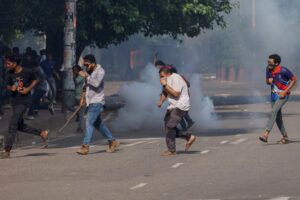
Under the quota system, a third of government jobs are reserved for family members of veterans from Bangladesh’s 1971 independence war. Students, angered by high youth unemployment, are demanding a merit-based system. Protests escalated after violence broke out at Dhaka University on Monday, with clashes between protesting students, police, and the student wing of the Awami League.
Six people were killed in protests on Tuesday, prompting the government to shut all public and private universities indefinitely on Wednesday and deploy riot police and the Border Guard paramilitary force to campuses. Chowdhury reported that students were “stuck” on campuses at Dhaka University and Jahangirnagar University, with police using rubber bullets, shotguns, tear gas, and being followed by pro-government student-wing members who attacked students.
Television Station
Late on Thursday, protesters attacked the state-run Bangladesh Television station’s head office, setting the reception and vehicles on fire, with many people trapped inside, according to the broadcaster’s Facebook page. The protests pose the first significant challenge to Hasina’s government since her fourth consecutive term win in January, an election boycotted by the opposition.
In a Wednesday speech, Hasina promised a judicial panel to investigate the deaths and bring those responsible to justice. The government had halted the quotas after mass student protests in 2018, but the High Court reinstated them last month following petitions from relatives of 1971 veterans. Hasina urged students to be patient until the Supreme Court rules on the government’s appeal next month.
Law Minister Anisul Huq said the government was open to discussions with the protesters. Both the US and Indian embassies in Dhaka issued advisories for their citizens to avoid demonstrations and large gatherings. Rights groups like Amnesty International, as well as the UN and the US, have urged Bangladesh to protect peaceful protesters from violence.



